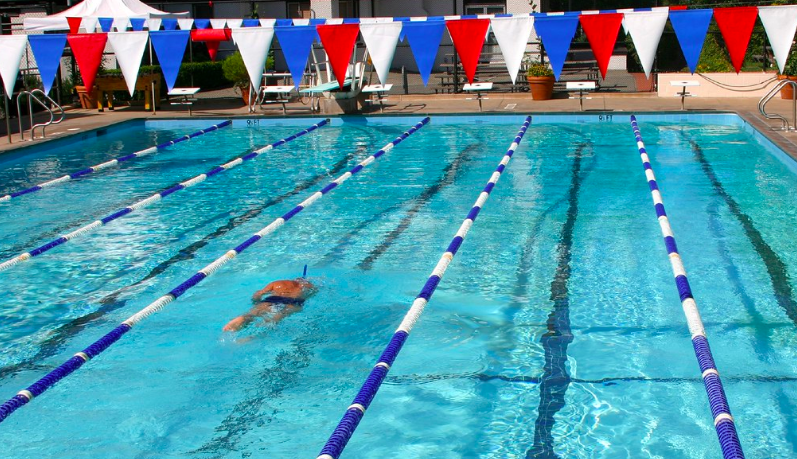|
Issue 2, Semester 2 XAVIER BOFFA Although I am not usually someone with any real interest in competitive swimming, like many Australians I’ve spent the last few weeks enthralled by the ongoing developments rocking the sport on an international level. For those not up to speed, the recent intrigue essentially arises from a growing angst among competitors and commentators concerning the adequacy of anti-doping measures, in light of serious allegations of illicit performance-enhancing drug use.
Things boiled over at the recent 2019 World Aquatics Championships in Gwangju, South Korea. First, Australian swimmer Mack Horton led a one-man stand in protest at what he appears to perceive as a lack of action by swimming regulator FINA. Horton has since been joined in protest by a number of other athletes from across the sport, fuelling a global spotlight on the issue. Things became more complicated when it was revealed—in what appears to have been an unauthorised leaking of confidential material to the media by an as-yet unidentified source (FINA has denied that it was responsible)—that fellow Australian Shayna Jack had been sent home before the Championships as the result of testing positive for banned substances. As with anything in the news, there has been a range of opinions expressed, with room for healthy disagreement about what all of this means for Jack, the Australian swim team, and the sport as a whole. I was, however, particularly unhappy to see one news article emblazoned with the (now amended) headline ‘ASADA slaps Shayna Jack with maximum ban’ and captioned with: ‘ASADA hits Shayna Jack with maximum penalty for positive drug test.’ The impression any lay observer (for instance, someone scrolling through Facebook on their train home) might draw from this material is probably something along the lines that ASADA had made a decision to ban Jack from swimming—and for a very long time. If one were to actually read the article however, it would become quite apparent that the truth is anything but. As explained by former ASADA CEO Richard Ings, the sending of a formal notification of a four-year ban by letter is standard practice for ASADA in all matters where positive substance tests have been returned. “I wouldn’t draw any conclusion from the four-year ban,” Ings even went on to say. In other words, the letter is not representative of a decision on the part of ASADA to ban Shayna Jack. Both a guilty swimmer and an innocent one would receive the same letter at this stage of the process. Certainly, ASADA has yet to make any determination in relation to Jack’s test results and there is a real possibility (I can’t speculate as to how likely) that she will not actually receive the ban. Yet it wasn’t just this one newspaper article; the same claim about ASADA ‘slapping’ Shayna Jack with a maximum ban was repeated on the TV news that evening. But why does any of this matter? Am I just getting offended about nothing? Any high school graduate will know to take news reporting with a healthy dose of scepticism. Why then are we a society that often seems so quick to rush to judgment? If our legal system is predicated on a commitment to rational, evidence-based inquiry, why are we so willing to accept premature, and even illogical reasoning in our media? This article’s lead claim that Shayna Jack is not a ‘drug cheat’ probably requires some further explanation. Obviously I am not a member of Jack’s defence team, nor am I privy to any information beyond that which has been made public. In time, I may even become convinced that Jack is guilty of doping. Nevertheless, here are some of my observations as a member of the public. First, the facts—at least as they are presently known—do not support the assertion that Shayna Jack is a ‘drug cheat’. Instead, all that can be said is that Shayna Jack gave an A and a B sample for which positive test results for a banned substance were returned. Even if this is true, this isn’t the full story of Shayna Jack. Second, Shayna Jack is entitled to be given the benefit of the doubt until the evidence suggests otherwise. Critically, Shayna maintains her innocence and has vowed to defend her reputation and clear her name. As a society of people seeking to live together in harmony, we have two choices:
Put yourself in Shayna’s shoes. Any smart person guilty of an allegation like this should realise that the truth will eventually come out. Which choice would you want others to make if you were her? Finally, even if Shayna Jack did intentionally take a banned substance, we should hesitate to brand her a ‘drug cheat’. I don’t know Shayna, I can’t attest to her character, and nor can I say with any certainty that she is a good person. But Shayna Jack, like you, me, everyone at this law school and everyone we share the planet with, is a human being. That means something. We each possess an inherent dignity that deserves respect. Like all of us, she has no doubt achieved great highs and suffered terrible lows. Like all of us, she has hopes and dreams, secret ambitions, and people who love and care for her. To define Shayna by her mistakes is to deny the whole person that is Shayna Jack. Xavier is a Second Year JD Student.
yawn
16/8/2019 11:30:03 am
Very subtle.
Concerned
18/8/2019 09:12:37 pm
Wait, isn't the author currently in jail?
Just Checking...
21/8/2019 12:56:20 pm
Might you be thinking of the esteemed Cardinal Pell? Comments are closed.
|
Archives
October 2022
|



